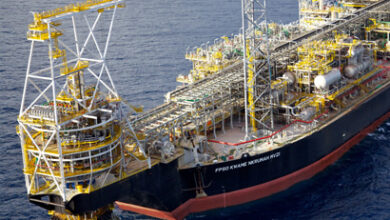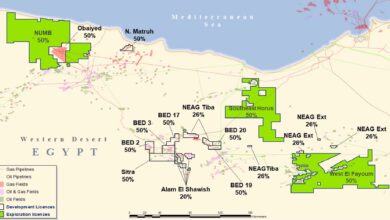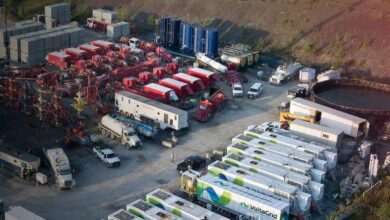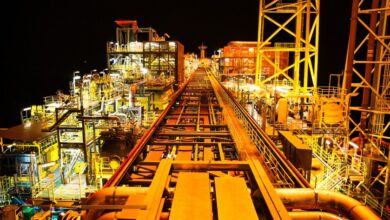DOE to fund research projects on ultra-deepwater drilling
The US Department of Energy (DOE) has selected 13 projects focused on ultra-deepwater environments for development. The projects, aimed at reducing risks while enhancing the environmental performance of drilling for natural gas and oil, will lead to awards totaling $35.4 million, adding to the research of the Office of Fossil Energy’s Ultra-Deepwater and Unconventional Natural Gas and Other Petroleum Resources Program.
The projects address: (1) new ways to monitor displacement during casing cementing using intelligent casing and smart materials, and (2) assessing corrosion, stress cracking and scale at extreme temperature and pressure. All projects aim to develop new technologies to enhance safety and environmental sustainability.
The total value of the projects is more than $56 million over four years with approximately $21.2 million of cost-share provided by the research partners in addition to the $35.4 million in federal funds. The Research Partnership to Secure Energy for America, under the management of the Office of Fossil Energy’s National Energy Technology Laboratory, will administer the research contracts.
The 13 selected projects are:
The Board of Regents of the University of Oklahoma (Norman, Okla.) — Intelligent Casing-Intelligent Formation Telemetry System. Researchers will identify reliable technologies that may be applied to make production casing “intelligent,” allow safe and effective deployment, and ensure highly reliable and effective data transmission to the surface. Much more data from the reservoir could be transmitted to surface operations as a result of this work.
Brine Chemistry Solutions (Houston, Texas) — Corrosion and Scale at Extreme Temperature and Pressure. Researchers will develop the necessary data, models and experimental tools to more accurately assess corrosion, stress cracking and chemical deposit buildup or “scale,” formation at extreme temperature and pressure. This information can be used to develop a methodology for the prediction, measurement and early detection of corrosion under deep subsurface conditions, minimizing risk of component failure.
Colorado School of Mines (Golden, Colo.) — Hydrate Modeling & Flow Loop Experiments for Water Continuous & Dispersed Systems. This project will focus on reducing the risk of environmental and operational safety problems associated with hydrate blockages forming in flexible subsea production tubulars. The project aims to modify and update an industry-standard viscosity model, perform lab experiments, incorporate the viscosity model with a hydrate growth rate model, predict and validate an improved hydrate kinetic model using flow loop experiments, and model development for water+gas and water+gas+oil systems.
Deepflex (Houston, Texas) — Qualification of Flexible Fiber Reinforced Pipe for 10,000-Ft Water Depths. Researchers will design concepts for lightweight, flexible risers that allow for safe installation, capable of faster and easier repair than conventional risers and provide a stronger product that is less apt to rupture. The project will also include prototype manufacturing and qualification testing.
Det Norske Veritas (Houston, Texas) — Ultra-deepwater Dry Tree System for Drilling and Production in the Gulf of Mexico. Researchers will select two platform designs with associated riser tensioning systems to meet design requirements for a new above sea-level, or “dry tree,” production system and perform pre-front end engineering design equivalent engineering and cost estimates.
Doris (Houston, Texas) — Low-Cost Flexible Production System for Remote Ultra-Deepwater Gulf of Mexico Field Development. Researchers will evaluate a circular-shaped floater with storage and a floating production unit with direct production to shuttle tankers as a possible concept for use as a safe, environmentally sound and economically feasible low-cost remote deepwater production system. The study will include an evaluation of various riser options, dynamically positioned shuttle tanker operations analysis, risk analysis and hazard identification, and analyses of hurricane abandonment acceptability with hydrocarbons in storage and regulatory/compliance requirements.
GE Global Research (Niskayuna, New York) — All Electric Subsea Autonomous High-Integrity Pressure Protection System (HIPPS) Architecture. The goal of this project is to reduce the risk of environmental impacts resulting from subsea equipment failure through the use of improved failsafe systems and controls. An electric failsafe HIPPS will help ensure the integrity and safety of any subsea equipment not rated for the wellhead shut-in pressure.
GE Global Research (Niskayuna, New York) — Qualification of Flexible Fiber Reinforced Pipe for 10,000-Ft Water Depths. The goal of this project is to design concepts for lightweight, flexible risers that allow for safe installation, will be capable of faster and easier repair than conventional risers, provide a stronger product that is less apt to rupture, and can potentially resolve situations before they develop into environmental problems. The project will also include prototype manufacturing and qualification testing.
NanoRidge Materials (Houston, Texas) — Ultra-High Conductivity Umbilicals: Polymer Nanotube Umbilicals. The next step in this continuation project is to achieve a conductivity capability for subsea umbilicals that is at least comparable to that of copper but at a much lower weight. A polymer nanotube-based high conductivity wire for umbilicals, the cables that provide power to satellite wells, will increase the distance that satellite wells can be located away from surface facilities, leading to a reduction in energy requirements and a smaller operations carbon footprint. Ultimately, the reduced size and weight of the umbilicals will result in easier and potentially safer handling of cable during installation.
Remora Technology (Houston, Texas) — Deepwater Direct Offloading Systems, Phase 1. The goals of this project are to develop a system-level qualitative assessment of a safe offloading system to enable offloading directly to a tanker from a floating production, storage and offloading unit, to perform a technology readiness level analysis, and to identify opportunities to pilot the technology. This work will result in a near-field-ready ultra-deepwater direct offloading system that minimizes the amount of required equipment and leak paths, resulting in safer and simpler offloading methods.
Stress Engineering (Houston, Texas) — Ultra-Deepwater Riser Concepts for High Motion Vessels. The goal of this project is to evaluate the safety aspects of various high-motion vessel riser concepts and mature at least one of these concepts to a field-ready status of development. The results of this work will lead to additional testing of the most critical aspects of the most promising riser concepts.
Stress Engineering (Houston, Texas) — Effects of Fiber Rope – Seabed Contact on Subsequent Rope Integrity. Researchers will develop a risk-averse testing plan and seek agreement to qualify polyester mooring ropes for incidental seabed contact and pre-installation on the seabed. The project will include full-scale lab-strength testing, bench-scale soil ingression, cyclic wear testing and residual break-strength testing, as well as submerged-rope soil ingression field tests.
University of Houston (Houston, Texas) — Smart Cementing Materials and Drilling Muds for Real Time Monitoring of Deepwater Wellbore Enhancement. Researchers will address the issues of unexpected fluid loss, cement location and competence, and real-time identification of cement tops by changing the compositions of, and adding sensing properties to, the drilling mud and/or cement slurry.





How long do the workers have to sfefur? BP set aside $20 billion that Mr. Feinberg and the GCCF have completely mismanaged. For those of us out of work as a direct result of the spill and your Administrations moratorium, we are all starving. The GCCF has told thousands of us that BP is not responsible for the moratorium, and therefore not obligated to pay lost wages to the workers of the Gulf Coast, only businesses and property owners. Your administration has let this pass, and supported the GCCF in its stance of not my problem . If it weren’t for the spill, would there be a moratorium? I know that I speak for thousands when I say that I do not care about political agenda, views, or your obvious disregard to your peoples struggles. My children as well as thousands of others are paying for you having a need to teach the oil companies a lesson. To punish big oil is one thing, to make your people starve while doing so is another. We are workers. This is our way of life. We have sacrificed enough just by doing our jobs. We are not asking for handouts, charity, or well wishes. We all want to go back to work. We are used to EARNING our money, our way of life, our right to not have to tell our sons and daughters no to the simple things in life.You, Sir, are not allowing these simple things. You should be ashamed. I understand that you are not, but I leave you with one thought. Every single thing you have right now is provided to you by hard working people, and you have turned your back on us. Although I know you don’t, you should feel disgraced by your decisions and actions.